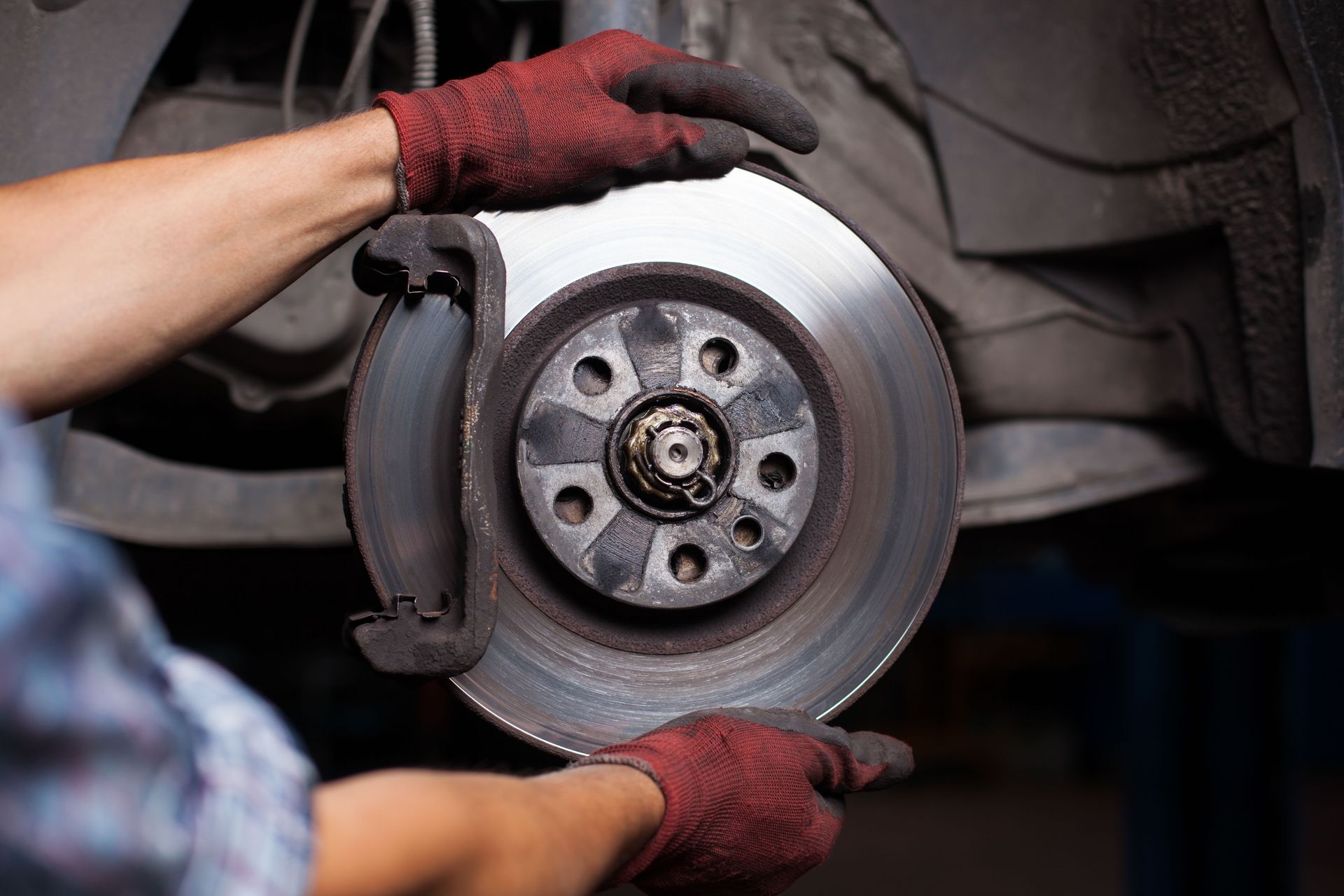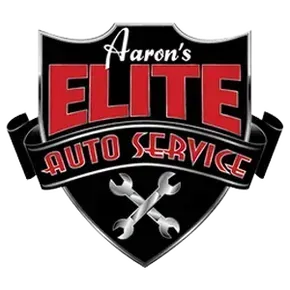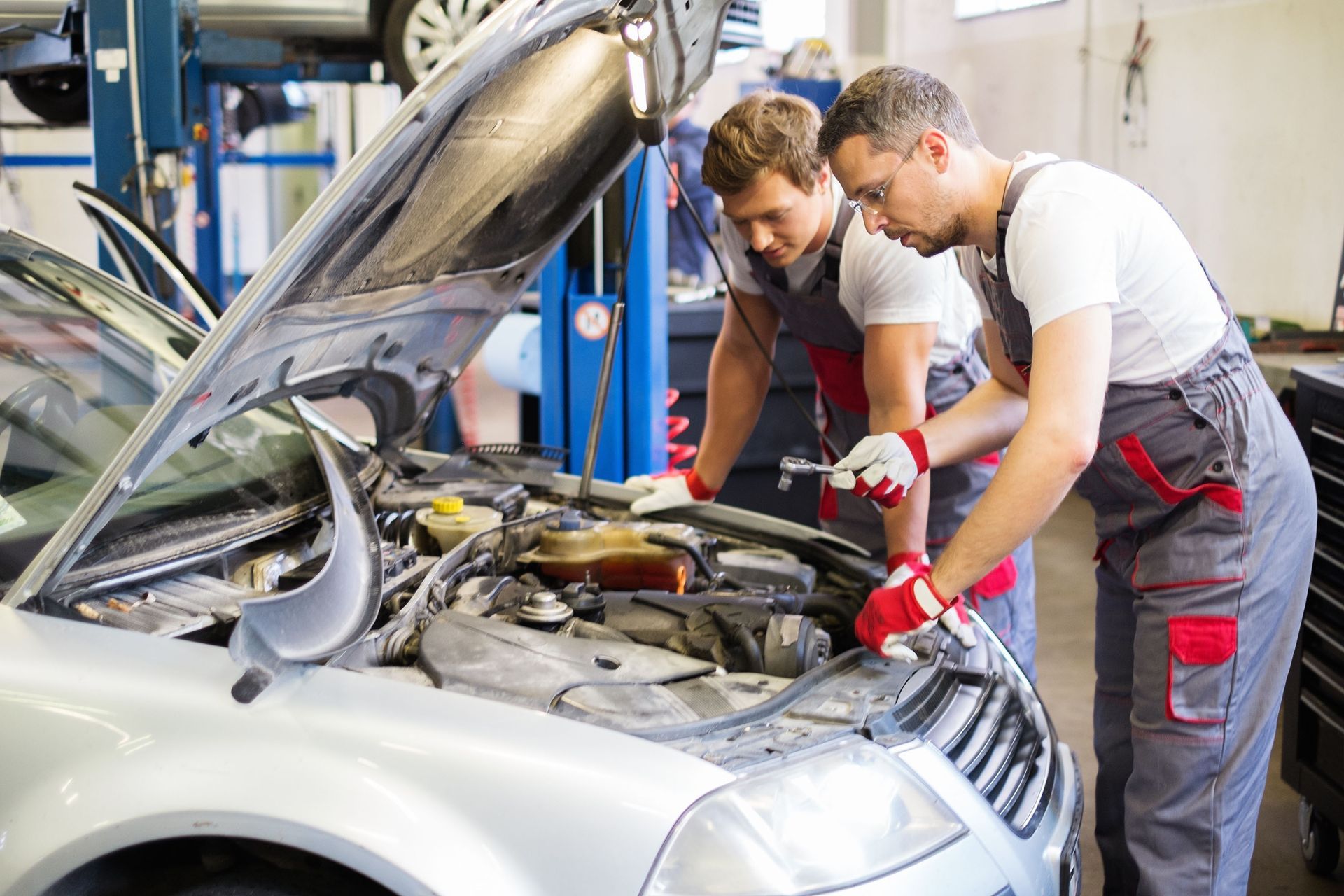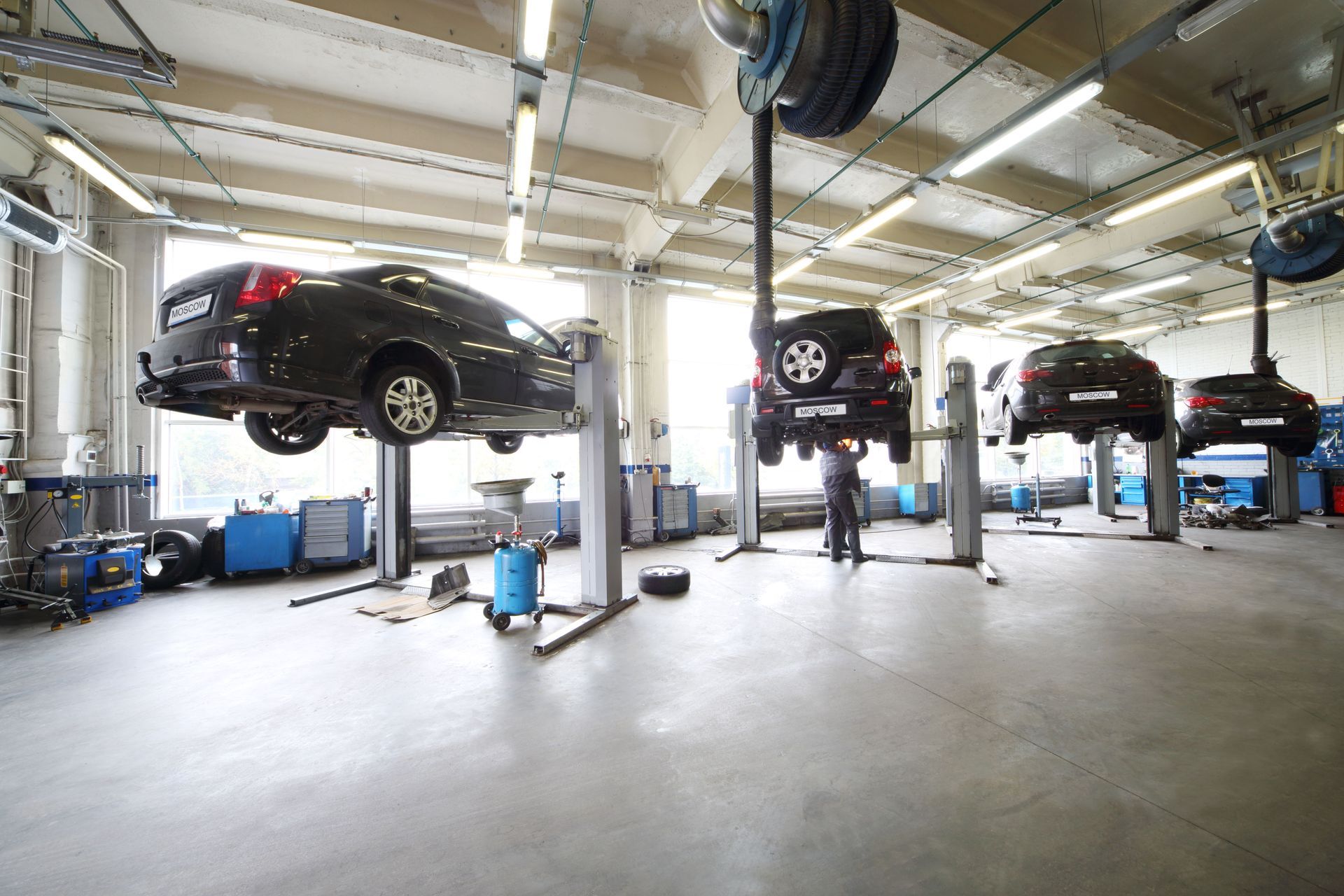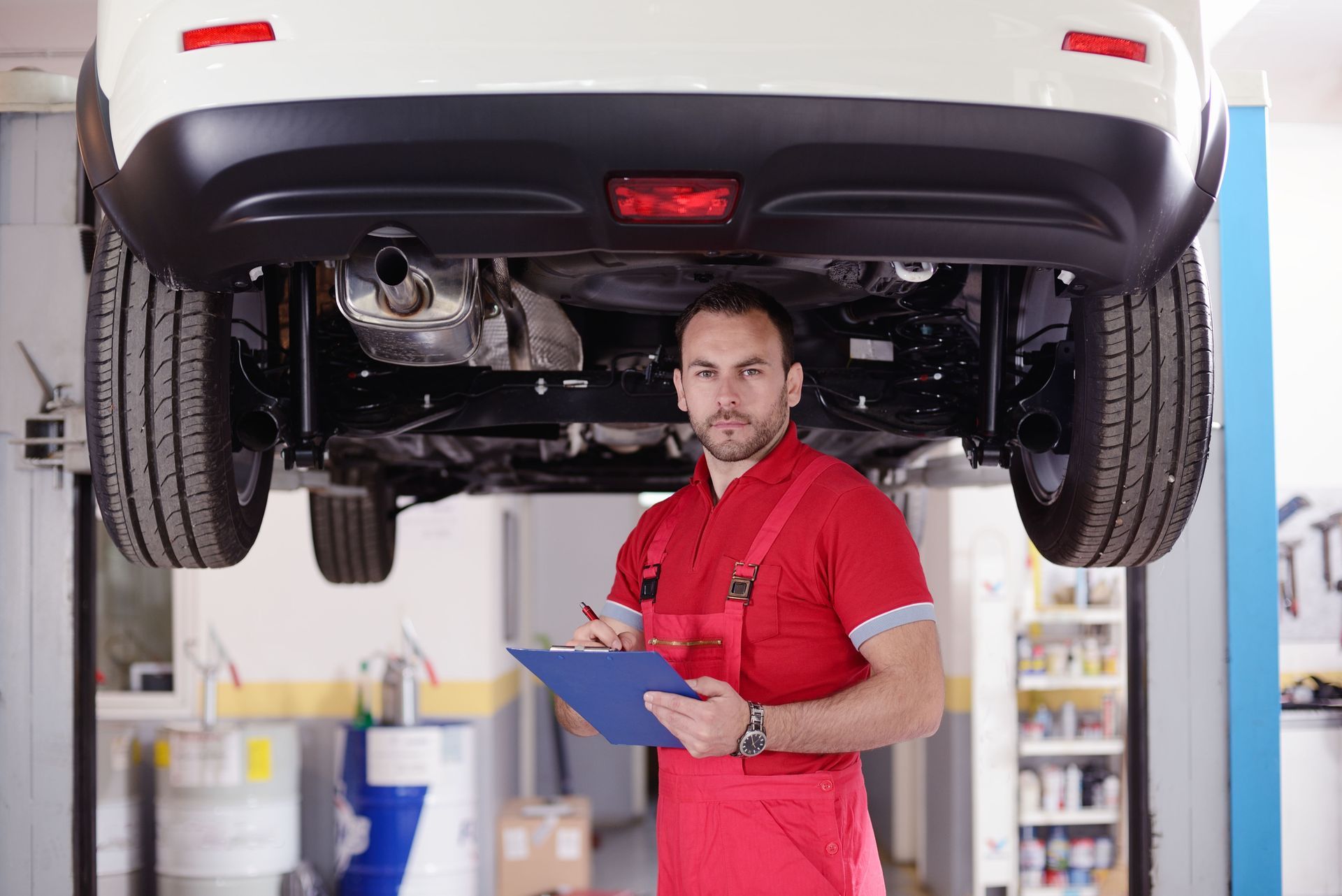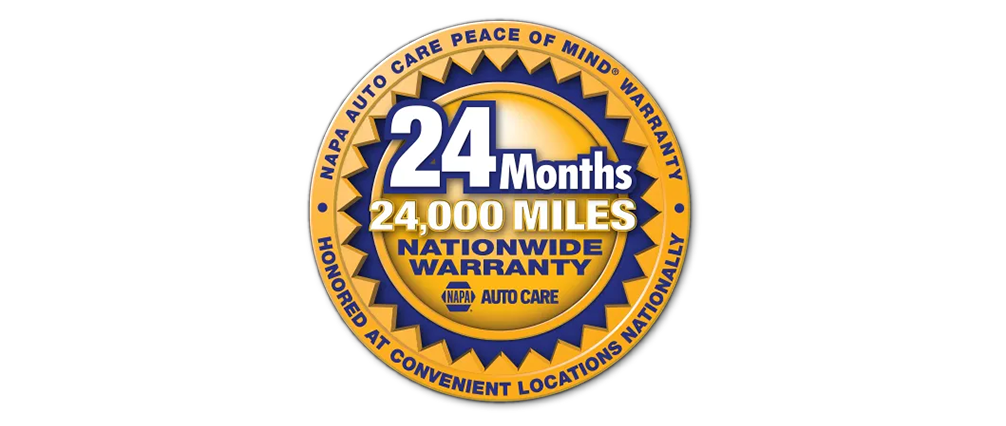Brakes are one of your vehicle's most essential safety features, and maintaining them properly ensures both your safety and the performance of your car. Yet, many drivers don't think about their brakes until something feels—or sounds—wrong. The braking system endures enormous stress every time you drive, and over time, the components naturally wear down.
Recognizing when to seek an auto brake service can prevent more costly repairs, improve your stopping power, and keep you safe on the road.
According to Gitnux, general vehicle repairs comprise 85.1% of the auto repair industry's entire revenue, highlighting just how often car owners face maintenance needs like brake replacements. In this article, we'll discuss the most common warning signs that indicate your brakes are due for replacement, what causes brake wear, and how professional care can extend their lifespan.
Unusual Sounds That Signal Brake Trouble
One of the first signs drivers often notice is an unusual sound when applying the brakes. If you hear high-pitched squealing, grinding, or scraping, it's time to take a closer look—or better yet, schedule an auto brake service.
Squealing typically comes from a small metal shim known as an indicator, which is designed to alert you that your brake pads are wearing thin. This sound is your vehicle's built-in reminder that it's time to act before the pads wear down completely.
If the noise becomes a grinding sound, that's a more serious warning. Grinding suggests that the brake pad has worn through entirely, and the metal components of the brake are now rubbing against the rotor. This not only compromises braking performance but can also lead to deep grooves in the rotor, requiring expensive repairs or replacements.
Sometimes, you might hear a clicking or rattling sound when braking. This can indicate that a part of your braking assembly—such as clips or pins—has loosened. Even if the brakes still feel functional, these noises warrant a professional inspection to prevent a potential failure.
Changes in Pedal Feel or Pressure
A properly functioning brake pedal should feel firm and responsive. If you notice that the pedal feels spongy, sinks to the floor, or requires extra pressure to engage, it could mean that air or moisture has entered your brake lines.
In hydraulic systems, air in the brake line interrupts the even distribution of fluid pressure, making the pedal feel soft. Moisture contamination, on the other hand, can corrode metal components and reduce braking efficiency.
If your pedal vibrates or pulses while stopping, it could be a sign that your brake rotors are warped. Warping often results from excessive heat generated during heavy braking—especially when driving downhill or towing a load. In these cases, a professional auto brake service can resurface or replace the rotors to restore smooth operation.
Ignoring changes in pedal pressure can lead to dangerous situations where your brakes respond unpredictably or fail altogether. That's why noticing and addressing these symptoms early is crucial.
Warning Lights and Dashboard Alerts
Modern vehicles come equipped with sensors that alert you when it's time for maintenance. One of these sensors monitors your braking system. When the brake warning light appears on your dashboard, it could mean a few things:
- Your brake fluid level is low.
- The parking brake is still engaged.
- There's a problem with the anti-lock braking system (ABS).
- Your brake pads have reached their wear limit.
While it might seem tempting to ignore the light—especially if your car seems to be driving fine—it's important not to. A low fluid level could signal a leak in the brake lines or calipers, both of which are serious safety hazards. If your ABS light appears, it may affect how your car handles sudden stops or slippery conditions.
A professional inspection will pinpoint the exact cause and recommend whether you need an auto brake service or another type of repair. Keeping up with these alerts can help you avoid roadside emergencies and maintain confidence behind the wheel.
Vehicle Pulling or Drifting When Braking
Have you ever felt your car pull to one side when you press the brake pedal? This sensation usually means there's an imbalance in the braking system. It could stem from uneven brake pad wear, a sticking caliper, or even unequal hydraulic pressure in the lines.
When one side of your vehicle's brakes applies more pressure than the other, it not only affects control but also increases the risk of premature tire wear and suspension strain. If left unchecked, the issue can escalate into full brake failure on one side of the car.
During an auto brake service, technicians measure the wear on each brake pad and rotor, clean and lubricate caliper slides, and verify that hydraulic lines are distributing pressure evenly. This type of maintenance ensures balanced braking and a smoother, safer ride.
Vibrations or Shaking When Stopping
Another noticeable symptom of brake trouble is vibration. If your steering wheel, pedal, or entire vehicle shakes when you brake, it's often due to rotor irregularities. Over time, heat buildup can cause the rotors to warp slightly, leading to uneven contact with the brake pads.
In addition, accumulated dirt or rust can interfere with the brake pad's grip, creating a pulsing sensation. Sometimes, this issue can be corrected by resurfacing the rotors; other times, replacement is the only option.
Vibrations can also signal issues with wheel alignment or suspension, so it's best to let a professional technician conduct a thorough evaluation. Many drivers find that a scheduled auto brake service not only fixes vibration issues but also improves the overall feel and stability of their vehicle.
Burning Smells and Overheating Brakes
A sharp, chemical odor coming from your wheels or undercarriage after heavy braking can indicate overheated brake components. When brakes overheat, they produce a distinct smell that often accompanies smoke or visible heat waves from the wheels.
This situation can happen after driving downhill, towing heavy loads, or braking aggressively in traffic. Overheating causes the brake fluid to boil, leading to temporary brake fade, where your brakes lose their stopping power.
If you smell burning rubber or chemicals, pull over safely and allow the brakes to cool before continuing. Continuing to drive can cause permanent damage to pads, rotors, and calipers. After such an event, schedule an auto brake service to inspect for any heat-related wear or damage.
Increased Stopping Distance
One of the most dangerous indicators of brake wear is a longer stopping distance. If your car takes noticeably more time or distance to come to a complete stop, it's a clear sign your braking system isn't performing at its best.
This could result from worn-out pads, glazed rotors, or low hydraulic pressure. In any case, it's a serious safety issue that requires immediate attention. A vehicle that can't stop efficiently not only endangers you but also everyone else on the road.
A trusted auto brake service includes testing braking force, fluid condition, and pad thickness to identify the cause. Technicians can then replace or adjust the components as necessary to restore optimal performance.
Factors That Affect Brake Lifespan
Not all brakes wear out at the same rate. Several factors influence how often you'll need new ones:
- Driving habits: Frequent hard braking or tailgating accelerates wear.
- Terrain: Hilly areas put more strain on brakes than flat roads.
- Vehicle weight: Heavier vehicles require more stopping power.
- Weather conditions: Moisture and salt can corrode metal components.
- Brake material: Ceramic pads last longer but can cost more than organic or metallic options.
To make your brakes last longer, practice smooth braking, avoid riding the brake pedal downhill, and schedule regular inspections. Professionals can detect uneven wear and recommend maintenance before it becomes a major issue. Regular auto brake service helps extend the life of your entire braking system and gives you peace of mind on the road.
If you've noticed any of the symptoms mentioned above, don't wait until it's too late. Contact Aaron's Elite Auto Service today to schedule a complete brake inspection and service. We take pride in helping our customers stay safe on the road with honest evaluations, quality workmanship, and dependable care. Your safety and satisfaction are always our top priorities.
